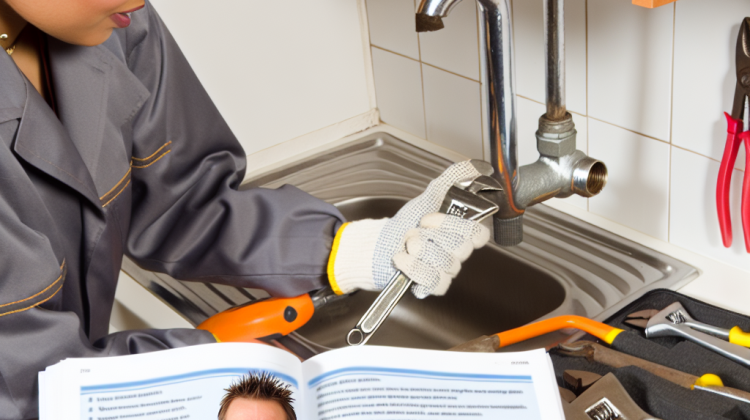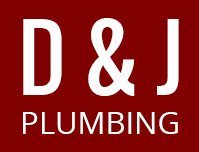
Did you know that the ancient Romans had some of the most advanced plumbing systems in the world? They built aqueducts to carry fresh water into cities, and they even had public baths! Over time, plumbing has evolved, but its importance remains huge today. If you’ve ever dealt with a leaky faucet or a clogged toilet, you know just how vital plumbing is in our daily lives.
Learning about plumbing isn’t just for the pros; anyone can dive into it. A long time ago, people learned by working alongside skilled plumbers, picking up tips and tricks as they went. Nowadays, you can access tons of resources right from your sofa. There are videos online that show you how to fix things step by step. Schools and community centers also offer classes where you can roll up your sleeves and get hands-on experience. Plus, there are lots of books filled with great advice and helpful hints.
Did you know that a common plumbing issue, like a dripping faucet, can waste over 3,000 gallons of water a year? That’s enough to fill a backyard pool! So, it’s super important to learn how to handle these issues. If you take the time to learn a few skills, you could save water and money.
It can feel a bit intimidating at first, but don’t sweat it! Start small. Fixing a leaky pipe or replacing a showerhead can be a great way to begin. There are beginner projects just waiting for you to tackle. Every time you learn something new, it boosts your confidence. Plus, you might just discover a hidden talent!
Joining a local plumbing club or finding a buddy who’s into DIY can make learning even more fun. You can share tips, trade tricks, and maybe even tackle a project together. There’s something about working with others that makes solving problems way easier! Just imagine swapping stories about your successes and hilarious mishaps.
While you’re learning, take advantage of all the free resources out there. Libraries often have books and magazines on plumbing, and many communities have workshops. YouTube is a treasure trove of how-to videos. You could learn to fix anything from a running toilet to a burst pipe. The more you practice, the better you’ll get, and before you know it, you’ll be a plumbing whiz!
Learning About Plumbing: Your Handy Guide
Understanding the Basics
So, you wanna learn about plumbing? That’s awesome! Plumbing is all about how water moves around in our homes. You’ve got pipes, fixtures, and appliances that all work together to make sure we have clean water to drink and showers to take. It’s not rocket science, but it helps to know a few basics.
Where to Start
First things first, grab a book or go online! There are tons of DIY books that break down plumbing in a way that’s super easy to understand. Websites like YouTube offer loads of videos where people show you how to fix stuff step-by-step. You’ll be a plumbing whiz in no time!
Hands-On Learning
You can’t learn everything from just reading or watching videos. You’ll need to get your hands a little dirty. Start with small projects around the house. Leaky faucet? Try fixing it! Draining tub? Give it a go! The more you practice, the better you’ll get.
Take a Class
If you really want to dive deep, consider taking a plumbing class. Many community colleges offer courses that teach you the ins and outs of plumbing. You’ll learn about tools and techniques, and there’ll be a teacher to help if you get stuck. It’s a great way to meet others who are also interested in plumbing, too!
Tools of the Trade
To be a good plumber, you’ll need the right tools. Here’s a quick list of what you might need:
- Wrenches
- Pipe cutters
- Plumber’s tape
- Augers
- Safety goggles
Every tool has its purpose, so figuring out what they do is an important part of learning plumbing!
Ask a Pro
Got a friend or relative who’s great at plumbing? Ask them if you can tag along while they work on a project. Watching someone with experience can teach you more than books or videos ever could. Plus, it’s always fun to hang out and learn something new!
Understand Safety
Before you jump into any plumbing project, remember to think about safety. Always turn off the water supply before starting. Wear gloves to protect your hands. And don’t forget about those safety goggles! It’s important to keep yourself safe while you learn!
Common Plumbing Problems
It’s helpful to know what problems you might run into. Here’s a few common issues:
- Leaky faucets
- Clogged drains
- Running toilets
- Low water pressure
Learning how to fix these can save you a ton of money because you won’t always need to call a plumber!
Statistics That Count
Did you know that around 10% of homes have leaks that can waste more than 90 gallons of water every day? That’s a whole lot of water down the drain! Knowing some plumbing skills can help you save not only water but also money on your bills.
“`html
What is plumbing?
Plumbing is the system that moves water and waste in and out of buildings. It uses pipes, fixtures, and valves to help us use water easily.
How can I learn the basics of plumbing?
You can start by reading books, watching videos online, or even taking a class. Many community colleges offer introductory plumbing courses.
Is it hard to learn plumbing?
It might seem tricky at first, but with some practice, you’ll get the hang of it! Just take your time and don’t rush.
What tools do I need to start learning plumbing?
You’ll need some basic tools like a pipe wrench, pliers, a tape measure, and a plunging tool. Having the right tools makes learning easier!
Can I fix plumbing problems myself?
Yes, many small problems can be fixed on your own, like a leaky faucet or a clogged drain. Just make sure to know what you’re doing before you start!
When should I call a plumber?
If the problem is too big, like a burst pipe or major leaks, it’s best to call a plumber. They have the experience to fix tough issues!
Are there any safety tips for plumbing?
Absolutely! Always turn off the water before you start working, wear gloves, and be careful with tools. Safety first!
How can I practice my plumbing skills?
You can practice at home by doing small projects or helping a friend fix things. Just make sure to ask before you jump in!
Will learning plumbing help me in the future?
For sure! Knowing plumbing can save you money on repairs and might even help you get a job later on. Plus, it’s a handy skill to have!
Where can I find resources to learn more about plumbing?
You can find resources online like YouTube videos, plumbing websites, or even local libraries. There’s a ton of helpful information out there!
“`
Wrapping It Up: Learning Plumbing
So, to get the hang of plumbing, start by grabbing a handy guide or watching some YouTube videos. There’s a treasure trove of info online that can help you. Don’t be afraid to get your hands dirty, either! Practice on small projects, like fixing a leaky faucet or changing a toilet flapper. It’s all about learning and having fun while you do it. Plus, talking to pros in the field can give you some cool tips and tricks that books might not mention.
Also, consider joining a local class or workshop if you can. Many community centers offer these, and they’re a great way to meet others who want to learn, too. You’ll share stories, and maybe even laugh over your plumbing adventures. Remember, it’s okay to make mistakes along the way; everyone does! Just take your time, keep asking questions, and you’ll be on your way to becoming a plumbing whiz in no time. Keep that curiosity alive, and who knows, you might just find a new hobby or even a job!
